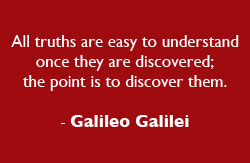 “A high credit score is bad!” Those were the exact words uttered out of the mouth of my hairstylist at the beauty salon. “No, it’s not,” her coworker responded.
“A high credit score is bad!” Those were the exact words uttered out of the mouth of my hairstylist at the beauty salon. “No, it’s not,” her coworker responded.
As for me, you know how when you hear something terribly wrong – you start questioning yourself about what you heard. (Now’s the perfect time for a little Jeopardy music) Did you really hear that? Well, that’s the kind of moment I had to myself during their exchange.
Then I turned and asked, “Did you just say a high credit score is bad?”
“Yes,” she shot back beaming with confidence in her answer. And she went on to tell me it was better to have a lower credit score number. You know kind of like the game of golf where the person with the lowest score wins.
We’ll call my hairstylist Cindy for the purpose of this post. I said, “Cindy, a high credit score is not bad. It’s actually the reverse…”
After a few minutes of talking to her about credit scores she understood it more. Finally, everyone was in complete agreement – it’s better to have a higher credit score, than a low one. YES!
Who Calculates Your Credit Score?
Three national credit bureaus (Equifax, Experian and TransUnion) calculate your credit score using a special calculation formula.
What’s in a Credit Score?
Your credit score is used to measure your creditworthiness. In other words, it helps lenders to gauge how likely you are to pay back a loan or credit line account.
To calculate your credit score, the credit bureau uses your credit history information:
- Account types (revolving, loans) and balances owed
- Debt/credit ratio(Are you close to or over the credit limit?)
- Payment history (on-time, late, default)
- The length of time your account has been opened
What’s a Good Credit Score?
There is no formal definition of what a good credit score is. In general, most companies consider a credit score above 700 to be “good.”
However, it’s at the lender’s discretion how they interpret credit scores for loan approval decisions. During the Great Recession, some lenders required a credit score above 800 to qualify for loans. Most companies consider a credit score of 800+ to be “excellent” credit.
How to Improve Your Credit Score
People with good credit usually receive easier approval, pay less interest, get deposits waived and get many other benefits. If you need to raise your credit score, check out my blog post “5 Steps to Improve Your Credit.”


